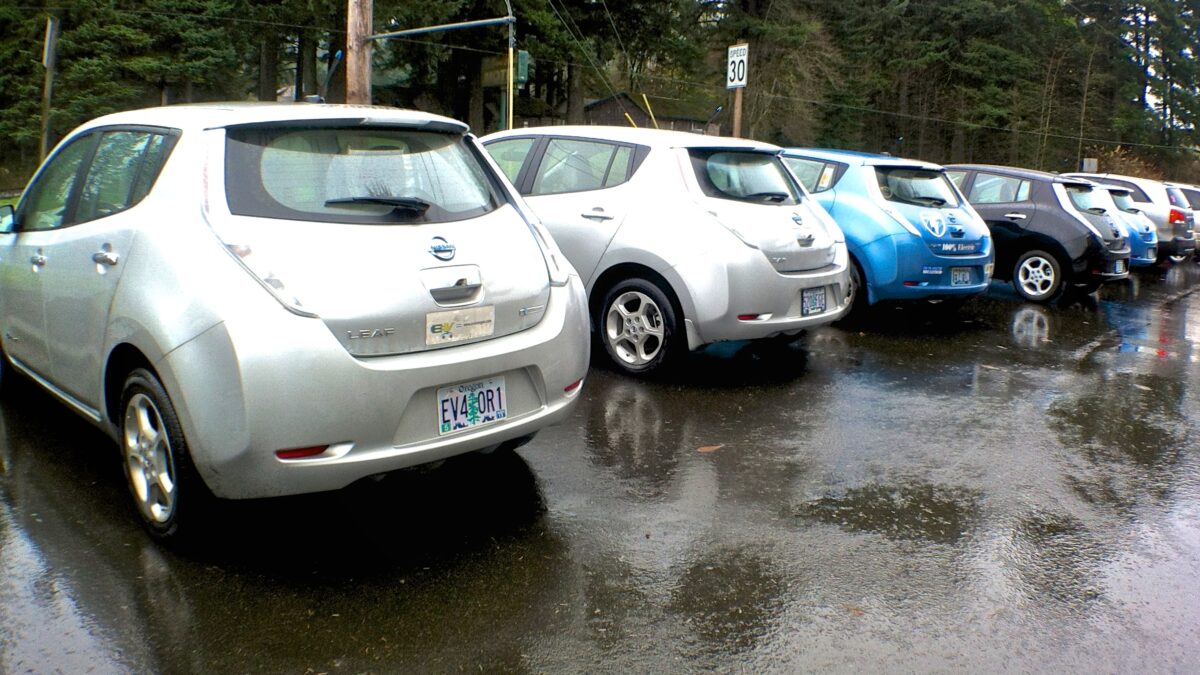
American Enterprise Institute blogger James Pethokoukis recently fell prey to the latest liberal excuse to enact progressive climate change policy. In an article titled, “You can be a climate change skeptic and still take action, just in case,” the AEI blogger cites dubious global warming claims to advocate big-government programs as a form of insurance against global warming. Liberal agendas aside, ignorance about future climate does not justify taking still more money and power from the people and giving it to government.
The latest tactic among global warming activists is to claim big-government global warming programs should appeal to political conservatives’ sense of prudence. The claim is people purchase insurance on their important possessions, such as their houses and automobiles, so it is similarly judicious for government to purchase insurance against global warming.
Although Pethokoukis usually sees through the big-government schemes of the collectivist left, he curiously champions their agenda with the following logic, “Balancing risks and accounting for trade-offs also seem like a political and policy smart way to being thinking about climate change and what to do about it.”
Pethokoukis’ argument is flawed.
Pethokoukis cites global warming activist Kerry Emanual acknowledging “we don’t have to worry very much” about 2.5 degrees Fahrenheit of warming, but alleging “there will be problems” with approximately 6 degrees of warming. Importantly, all of the warming of the twentieth century totaled just 1 degree Fahrenheit, with most of the warming occurring prior to 1945, before humans emitted much carbon dioxide. There has been no global warming this century. Given these facts, it seems highly unlikely that we will experience anywhere near 6 degrees of warming anytime during the next few centuries. On this point alone, economy-destroying global warming insurance is a bad bet.
Just as importantly, people purchase insurance either (1) when they are forced to do so or (2) when the price of insurance is commensurate with foreseeable risk. Most people who insure their houses do so because the banks that are financing their investments require insurance. Once a homeowner pays off his or her loan, he or she is much less likely to continue purchasing insurance. Because only a very small proportion of houses get destroyed by fire, storms or other catastrophes, insurance must be modestly priced for homeowners to voluntarily purchase it. Sure, it gives people some peace of mind to have their houses insured, but few people will purchase insurance if the annual premiums cost more than the value of the house. Indeed, annual premiums must cost – at most – only a few percent of the house’s value to be a wise and prudent investment for even the most risk-averse homeowners.
Also, insurance must effectively address foreseeable risks. If an insurance policy has such a large deductible that the insurance does little or nothing to mitigate the financial risks of home ownership, then few people will purchase it. Also, expensive insurance that does little to cover the most likely forms of foreseeable risk is not worth purchasing. For example, an insurance policy that insures a Texas home against a grizzly bear mauling but does not insure against termites and storms is of little value and is not a prudent or conservative investment.
This is relevant to the global warming discussion because even if one accepts alarmist global warming predictions (and keep in mind that Pethokoukis ostensibly does not accept such alarmist predictions for the purposes of his argument), completely eliminating U.S. carbon dioxide emissions will have essentially no impact on future climate unless rapidly developing nations such as China do likewise. China currently emits more carbon dioxide than all of the nations in the Western Hemisphere combined, and China’s emissions are increasing by approximately 10 percent per year. China also insists that it will not allow Western governments to rope it into carbon dioxide restrictions. Accordingly, imposing economically devastating restrictions on the U.S. economy – where emissions are not rising at all – does nothing to “insure” against the alleged impacts of rising global carbon dioxide emissions on global climate.
Still further, warmer climate has always benefited human health and welfare more than colder climate. This remains true today, as hurricanes, tornadoes, droughts, desertification and practically all other negative climate and weather factors have become less frequent and less severe as our climate warms. Conversely, plant growth, crop production, forest density, biodiversity, soil moisture, length of growing seasons and practically all other positive climate and weather factors have improved as our climate warms. Saying we need to punish our economy to mitigate and take out insurance against global warming is like saying we need to punish our economy to mitigate and take out insurance against another Reagan-style economic expansion.
Pulling each of these points together, Pethokoukis essentially arguing that it is a wise, prudent, and conservative investment for a homeowner to take out insurance on his or her house when annual premiums are as expensive as the house itself, deductibles force the homeowner to pay for 90 percent of any damage, the insurance applies solely to grizzly bear vandalism but no other foreseeable events, and the coverage kicks in only if the grizzly bear vandalism increases rather than decreases the value of the house. Pethokoukis and global warming activists may call this a prudent investment, but more rational minds call it destructive.
James Taylor is a senior fellow at the Heartland Institute. He maintains a personal website at www.JamesTaylorPolicy.com.









